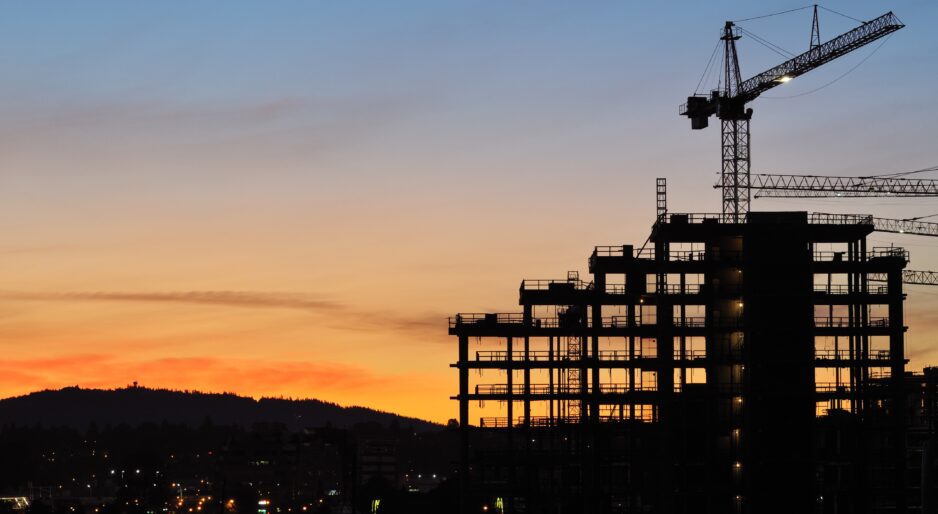In addition to growing a clean economy and addressing urgent health care issues, B.C. Budget 2023 promises to invest in housing development with measures intended to stimulate construction and provide support for families in need.
“B.C. is a great place to live, but people are facing real challenges – not only from global inflation and the pandemic, but from ongoing and systemic challenges,” said Katrine Conroy, Minister of Finance. “This year’s budget helps protect people who can’t afford today’s high prices and takes action on the issues people care about, like finding affordable housing and accessing health care.”
Specific to affordable housing and steps to prevent homelessness, B.C. Budget 2023 is providing an additional $4.2 billion in operating and capital funding over the next three years in a move it is calling the largest three-year housing investment in the province’s history. Meanwhile, moderate- and low-income renters will be eligible for a new income-tested renter’s tax credit. Qualifying households with an adjusted income up to $60,000 could receive up to $400 per year, while those with an adjusted income above the $60,000 threshold will receive a gradually reduced credit, reaching zero at $80,000 based on the 2023 taxation year.
David Hutniak of LandlordBC said his association has been supportive of a renter’s rebate program since the concept was first proposed back in 2017.
“We continue to be supportive,” he affirmed. “At that time, however, we argued that the rebate should not be universally applied to ensure that those in greatest need reap the benefits. We also advocated for a more generous rebate to, again, support those renters in greatest need. This meant income-testing, as the Province has proposed. It is good to see that the government has now delivered on its promise and that there’s a multi-year commitment to fund this initiative.”
Eligibility for the renter’s tax credit will exclude amounts paid for a campsite, moorage, or manufactured home site, under a rent-to-own plan, or by employers for accommodation that is not required to be included as income. To qualify, rent must be paid to unrelated persons, and the credit will be available for B.C. residents over the age of 19.
Partial tax exemption for new purpose-built rental buildings
As of January 1, 2024, purpose-built rental buildings in B.C. will be exempt from the additional 2 per cent property transfer tax that’s currently being applied to transactions involving properties exceeding $3 million. To qualify for this exemption, the residential portion of a building must be rental-only and have at least four apartments. The government said it introduced this new measure to build on the rental housing revitalization tax exemption provided in Budget 2018 and encourage more rental development in the future.
“While this is being framed as an incentive, in reality, it’s the government correcting an anomaly they created back in 2018,” observed Hutniak. “That year, the B.C. NDP introduced the so-called luxury home tax, which added 2 per cent PTT on the portion of the fair market value of any residential property transaction exceeding $3 million, which unfortunately meant that purpose-built rental buildings were captured by this additional tax.”
At the time, LandlordBC lobbied to change this, arguing that purpose-built rental buildings should be exempt from the tax given it unfairly targeted multi-residential rental assets and would discourage companies from building and purchasing apartments.
“We regularly reminded the B.C. NDP of the need to correct this anomaly and are pleased to see that they have finally eliminated this tax on purpose-built rental projects in Budget 2023,” he said. “While the current high interest rate dilemma has exacerbated the new rental construction environment, it is good to see that this change has been implemented.”
Secondary suites pilot
The government is also providing up to $91 million over three years toward a new pilot project that will provide financing incentives to encourage homeowners to develop new secondary suites on the property of their principal residence to rent to long-term renters. The pilot is anticipated to facilitate thousands of more housing opportunities across British Columbia.
“While little detail has been provided about this initiative, we look forward to potentially partnering with the Province to ensure that new landlords entering the market via this pilot understand their rights and responsibilities to ensure successful tenancies,” Hutniak said. “While clearly the long-term solution is to ensure that rental developers have a legislative environment conducive to the creation of an over-abundance of purpose-built rental housing, this pilot project could potentially facilitate more housing opportunities across B.C. in short order.”
Building and unlocking more homes
B.C. needs more homes, including purpose-built rental properties, to ensure it can meet current and future demand. As such, investments to get more shovels in the ground and to stimulate new construction, include:
- Almost $1.7 billion in operating and capital funding over the fiscal plan to create homes through the BC Builds and Building BC programs, which includes targeted investments in the Indigenous Housing Fund and the Community Housing Fund. It also includes $394 million to help buy land near future transit development to ensure affordable housing projects exist along transit corridors.
- An additional $575 million over three years to support the construction of thousands of new student housing spaces, including in high-demand areas in the Lower Mainland, southern Vancouver Island and Thompson Okanagan.
For more on B.C. Budget 2023, click here: Budget 2023 takes action on issues that matter most | BC Gov News





